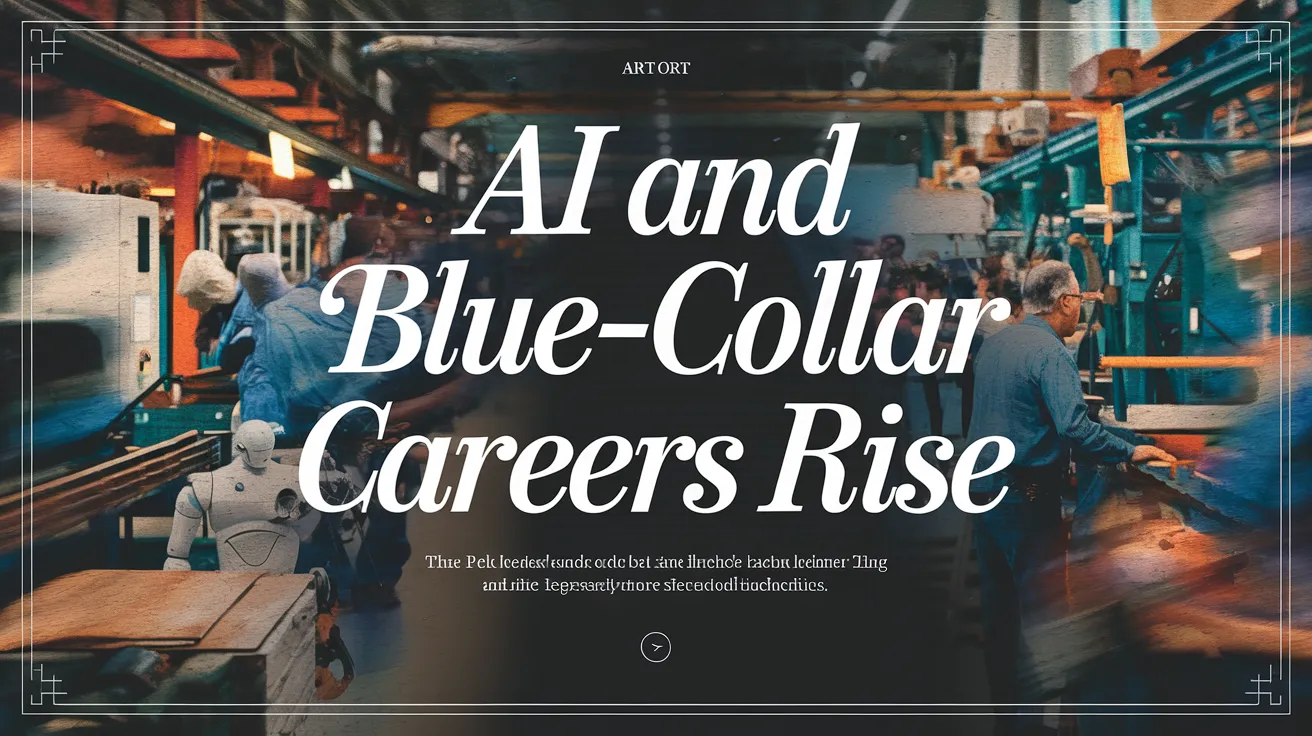AI and Blue-Collar Careers Rise

As artificial intelligence (AI) continues to evolve and pose threats to traditional white-collar jobs, a significant shift is occurring among young Americans who are increasingly opting for blue-collar careers. This trend reflects a growing awareness of job security and independence, especially among Gen Z, who are actively seeking alternatives to conventional college education.
Young Entrepreneurs in Skilled Trades
Jacob Palmer, a 23-year-old entrepreneur, exemplifies this trend. Having launched his own electrical company in 2024 after starting as an apprentice, Palmer expresses no regrets about choosing a tradesman path over a college degree. His business, Palmer Electrical, is projected to generate more than $150,000 in revenue this year. “I am very happy doing what I am doing now because it has given me the opportunity to work for myself and be independent,” he shared.
Concerns About Student Loan Debt
Experts have noted a surge in interest in skilled trades from young individuals dissuaded by high tuition costs associated with college education. Over 57% of Gen Z, according to Jobber, cite student loan debt as a significant deterrent from pursuing college. The increasing costs of higher education, now exceeding $38,000 per year on average, paired with historical expectations of securing a degree for job stability, are reshaping perceptions about the desirability of trades.
The Impact of AI on Employment Opportunities
The looming presence of AI in the workforce is further pushing young workers toward careers in trades. Job stability in fields such as plumbing, electrical work, and carpentry is prioritized, with 77% of Gen Z feeling that job roles in these areas are less likely to be automated. In contrast, emerging fears around job security in software development and data analytics highlight the shifting workplace landscape, challenging the longstanding notion that a college degree guarantees employment.
A Broader Acceptance of Blue-Collar Work
Leaders in the trades industry recognize this evolving mindset. David Asay, president of Advantage Reline, asserts that the stigma surrounding construction jobs is diminishing. The younger generation now sees skilled trades as viable career paths. This evolution in perspective is mirrored in reports from school districts, where interest in vocational education programs is surging.
The Road Ahead for Young Tradespeople
The economic climate is impacting the job market significantly. Many recent college graduates face an unemployment rate of 4.6%, compared to only a 0.5% rise in unemployment among non-college-educated workers in the same age group. This serves as a stark reminder of the challenges facing young graduates amid burgeoning AI advancements.
Job Security in the Trades
For Jacob Palmer, the assurance of job security as an electrician is unmistakable. While AI may influence various sectors, he remains optimistic about the resilience of his profession. “I don’t feel overly threatened by the growth of AI in my industry. That will be a pretty impressive robot that can do my job one day, if it ever happens,” he mentioned.
Younger individuals like high school senior Kayden Evans are also leaning toward trades, with plans to pursue an apprenticeship to secure their futures. “I wouldn’t say I am worried about AI because where I want to grow is as a field technician, and even though it helps, I don’t think AI can take that over,” Evans asserted, emphasizing the practical skills needed in the industry.
The trends evident among young Americans signal a transformative shift in career preferences. As AI reshapes the job landscape, many are choosing the stability of blue-collar work, where manual skills remain irreplaceable and the potential for entrepreneurship is increasingly attractive.